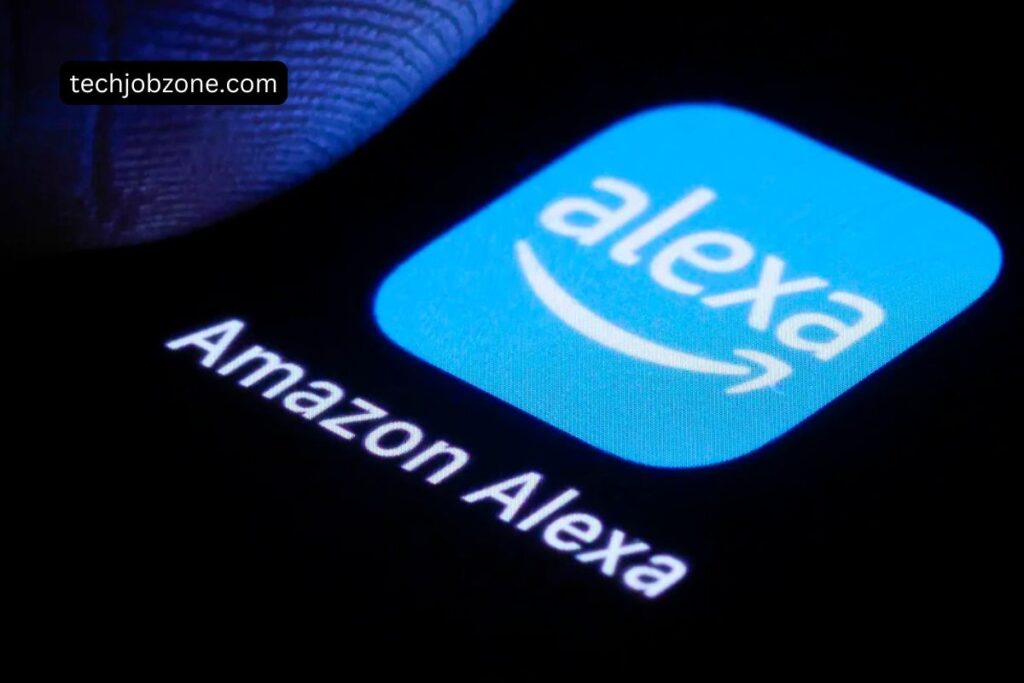On February 26, 2025, Amazon pulled back the curtain on Alexa+, a revamped version of its iconic voice assistant, ushering it into the fast-evolving artificial intelligence era. Revealed at a high-profile event in New York, this major upgrade aims to keep Alexa competitive amidst a surge of AI-infused rivals like OpenAI’s ChatGPT and Google’s Gemini.
With enhanced personalization, contextual awareness, and a knack for handling everyday tasks, Alexa+ is Amazon’s bold bid to reclaim its edge in the smart home tech race. Here’s everything you need to know about this game-changing update and what it means for the future of technology.
A Smart Leap Forward for Alexa
Amazon’s original Echo device, launched in 2014, turned heads with its voice-activated convenience, making Alexa a household name. Fast forward a decade, and the landscape has shifted dramatically—AI chatbots have raised the bar, leaving older assistants scrambling to keep up.
Alexa+ is Amazon’s answer, blending advanced artificial intelligence with the voice assistant’s familiar charm. Unveiled by Panos Panay, head of Amazon’s Devices and Services team, this upgrade promises to transform how we interact with smart home technology.
Read Also: Apple vs. UK: Encryption Battle Heats Up as Tech Faces Trump-Era Shifts
MacBook Air M4 Leak Exposed: Is This Apple’s Most Powerful Air Yet?
Unlike its predecessor, Alexa+ isn’t just about following commands—it’s about understanding you. From booking your Friday night dinner spot to tracking how many books you’ve read this year, the new Alexa leverages your personal data across apps and services to deliver tailored responses. It’s a significant step up from the classic Echo, and Amazon hopes it’ll finally turn its hardware division into a profit driver after years of financial stumbles.
Why Alexa+ Matters in the Tech World
The timing of this upgrade couldn’t be more critical. Since ChatGPT burst onto the scene in 2022, the tech industry has been in an AI arms race, with voice assistants like Alexa, Google Assistant, and Apple’s Siri playing catch-up. These AI chatbots don’t just respond—they converse, anticipate needs, and handle complex tasks. Amazon’s Alexa+ aims to bridge that gap, bringing its decade-old assistant into the modern AI era.
For users, this means a smarter, more intuitive experience. Imagine asking Alexa to alert you when concert tickets for your favorite band drop—or having it sense your frustration and soften its tone accordingly. For Amazon, it’s a chance to revitalize a business that’s reportedly bled billions, according to The Wall Street Journal. The Echo’s original promise—to boost Amazon shopping—never fully panned out, with users favoring alarms and music over e-commerce. Alexa+ could change that narrative, but it’s not without competition.
Competing in a Crowded AI Landscape
Amazon isn’t alone in this AI overhaul. Apple’s Siri is getting a personal-data boost, while Google’s Gemini is morphing into a proactive agent that tackles tasks for you. Alexa+ shares DNA with these rivals, using your app history, preferences, and device data to personalize interactions. In a preview video, Amazon showcased its capabilities: counting your yearly book tally, reserving a restaurant table, and even pinging you about ticket sales—all without breaking a sweat.

What sets Alexa+ apart, says Panay, is its ability to read your tone and surroundings. Feeling rushed? It might speed up. In a noisy room? It adjusts. This contextual awareness could give Amazon an edge, but it’s a tight race—Apple and Google are betting on similar smarts to keep their assistants relevant. The question is: can Alexa+ stand out in a field where personalization is becoming table stakes?
The Tech Behind Alexa+: AI Meets Voice
At its core, Alexa+ is powered by cutting-edge artificial intelligence, including large language models (LLMs)—the same tech driving ChatGPT. These models let Alexa+ process natural language, retain context, and adapt to your habits. Unlike the original Alexa, which relied on simpler algorithms, this version can handle multi-step requests and anticipate follow-ups. Ask about a recipe, and it might suggest tweaks based on your past cooking preferences.
Panos Panay highlighted the assistant’s environmental awareness during the keynote. “Alexa+ listens to your tone and understands your space,” he said, hinting at a blend of voice recognition and sensor data from Echo devices. This isn’t just about tech flexing—it’s about making interactions feel human. For a company that’s sold over 500 million Alexa-enabled devices, this upgrade could redefine how we use smart home tech in 2025.
From Alarms to Agents: A New Role for Alexa
The classic Alexa was a taskmaster—great at setting timers or playing tunes but limited in scope. Alexa+ aims to be an agent, not just a responder. Need to coordinate your week? It can check your calendar, book a spot, and remind you—all in one chat. This shift mirrors a broader tech trend: assistants are evolving from tools to partners, thanks to AI’s growing prowess.
Amazon’s betting big here. If Alexa+ can nail these advanced features, it might finally deliver on the Echo’s original vision—driving sales through seamless integration with Amazon’s ecosystem. But it’s a high-stakes gamble; any glitches or privacy missteps could dent trust in a product already under scrutiny.
The Business Angle: Can Alexa+ Turn a Profit?
Let’s talk numbers. Despite its dominance—Alexa powers half a billion devices worldwide—Amazon’s hardware division has been a money pit. The Wall Street Journal reports billions lost, largely because users didn’t shop via Echo as hoped. Instead, they leaned on freebies like music streaming and weather updates. Alexa+ is Amazon’s shot at flipping the script.
How? By making Alexa indispensable. If it can manage your life—book dinners, snag tickets, track habits—users might stick around and spend more. There’s buzz about a subscription model, potentially $5 to $10 monthly, though Amazon’s keeping mum for now. The free “Classic Alexa” will stick around, but the premium AI features could be the cash cow Amazon’s been chasing. It’s a pivot from cheap hardware to value-added services—a classic tech playbook move.
Privacy and Trust: The Elephant in the Room
With great personalization comes great responsibility. Alexa+ thrives on your data—app usage, preferences, even your tone. That’s a goldmine for convenience but a lightning rod for privacy concerns. Amazon’s had its share of controversies, from accidental recordings to data-sharing debates. Can it convince users that Alexa+ is worth the trust? Transparency will be key, especially as rivals like Apple double down on privacy-first branding.
What’s Next for Smart Home Tech?
Alexa+ isn’t just an Amazon story—it’s a bellwether for the smart home industry. If it succeeds, expect a ripple effect. Google might push Gemini harder, and Apple could fast-track Siri’s next phase. The stakes are high: voice assistants are the glue for smart homes, linking lights, thermostats, and more. A win for Alexa+ could cement Amazon’s lead, while a flop might open the door for competitors.
For consumers, it’s a taste of what’s coming in 2025. Smarter assistants mean less fumbling with apps and more living in the moment. But it’s not all rosy—AI’s growing role raises questions about dependency and control. Are we ready for devices that know us this well?
The Competitive Edge: Alexa+ vs. the Rest
So, how does Alexa+ stack up? ChatGPT’s conversational chops are unmatched, but it’s not baked into your home. Google’s Gemini is agent-focused, but its ecosystem lags behind Amazon’s. Siri’s personal touch is promising, yet Apple’s hardware reach is narrower. Alexa+ blends ubiquity with AI smarts—a combo that could resonate if executed right. Panay’s demo showed polish, but real-world hiccups (think “hallucinations” where AI invents answers) could trip it up.
Read Also: Xiaomi’s First AI PC Revealed: Is the REDMI Book Pro 2025 a Game-Changer?
US Court Rules No Copyright for AI-Generated Art: A Blow to Tech Innovators
The Verdict: A Make-or-Break Moment for Amazon
Alexa+ is more than an upgrade—it’s a lifeline. Amazon’s spent a decade building a voice empire; now it’s fighting to keep it relevant. The February 26 reveal was a flex of ambition, but the proof’s in the rollout. Will users embrace this AI-powered sidekick, or stick to simpler days of “Alexa, set a timer”? Early adopters will get a free taste soon, with broader access—and possibly that paywall—on the horizon.
For tech fans, this is a front-row seat to the AI revolution. For Amazon, it’s a chance to turn red ink black. What do you think—can Alexa+ win you over, or are you skeptical of this AI makeover? Drop your take in the comments, share this with your tech-savvy crew, or explore our other posts on the latest in smart home tech. The future’s talking—let’s join the conversation!

